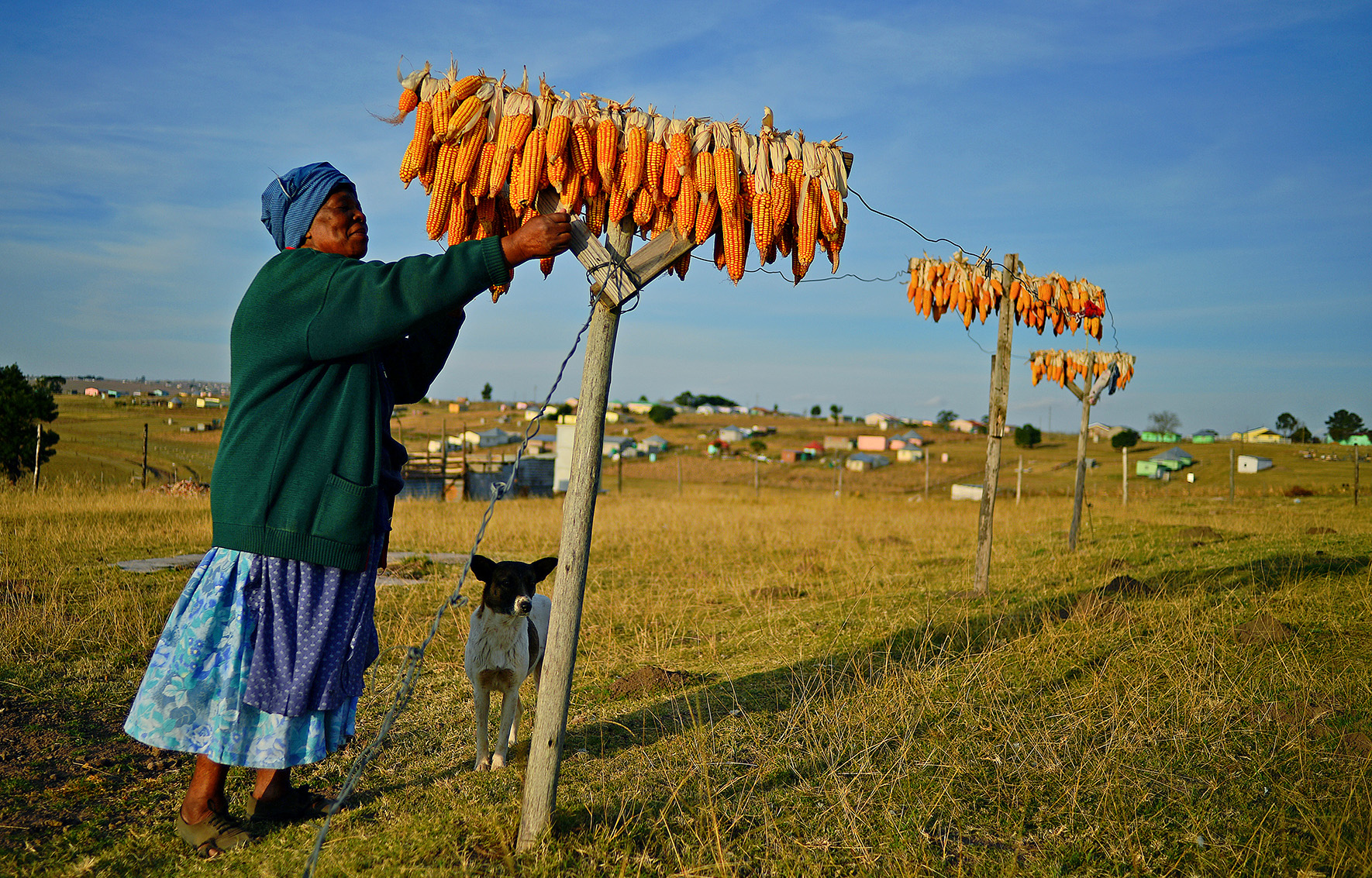Subsistence farmers in the Eastern Cape are going hungry despite their farming activities, and researchers have called for a broadened food security strategy that goes beyond backyard gardens.
Between March and September 2023, at least 447,000 people in the Eastern Cape ran out of money to buy food. Other statistics show mild to severe hunger in the province.
Dr Kwena Frans Mothupi and Dr Reesha Kara, researchers at Rhodes University’s Institute of Social and Economic Research (Iser), told Daily Maverick about their work on food insecurity among subsistence farmers in the province.
Their study assessed the relationships between household agricultural activities, socioeconomic characteristics and food insecurity in the Eastern Cape. This was drawn from the 2023 General Household Survey.
Primary findings were that households engaged in subsistence farming in the Eastern Cape remained vulnerable to food insecurity, and this emphasised the need to broaden food security strategies beyond the agricultural sector.
Kara said that there was a shift from being dependent on agricultural produce or subsistence agriculture for food provision and food security to more reliance on income, mainly wages and social grants.
Social grants “are now used to provide food and I think for us this was a massive red flag because there was always this assumption that if you are farming at home, then you are food secure, but it turns out that results nationally show that this is not the case for many, many South Africans who engage in agricultural activities.”
‘Multiple factors’
Kara says multiple factors play into subsistence farming failing to provide enough food for households.
“People need land to engage in subsistence farming, but the need is more complex and deeper where additional support in terms of skills on farming is required… another really basic thing is access to water. Some people have space in their backyards to engage in subsistence farming, but then access to water is a problem.”
Other factors include a decline in knowledge sharing of farming tactics, such as what type of vegetables grow in which seasons, and the availability of seedlings.
Kara said that “it gets even more complicated if we talk about the keeping of livestock and what does that mean in terms of land to graze; learning methods of grazing like rotational grazing; support for vaccines – and that prompted a whole study on markets that are available to support livestock farmers so they could turn this livestock into money.”
Dr Mothupi said that “from the research that we did, it is clear that agricultural households are the ones that are more vulnerable to food insecurity. If you look at other provinces like Limpopo, which arguably has the same profile as a province like the Eastern Cape – if you look at their food insecurity levels, they are a bit lower. In fact, I think they are the lowest in the country.”
Mothupi is a postdoctoral fellow at the Iser/Future Earth Africa Hub Leadership Centre.
“There is declining engagement in agricultural activities, and that’s why we need to look into solutions that look beyond engagement in agriculture.
“Our research shows that most of the agricultural households are doing those activities just to supplement their food intake, which mostly comes from those accessed by purchasing from the supermarket through grants and income.
“Households that have an unemployed member are twice [as] likely to experience hunger than the ones which have an employed member. So you can see that income really plays a big role in households achieving food security, rather than them being agriculturally active,” Mothupi added.
Under the leadership of Prof Cyril Nhlanhla Mbatha, Iser focuses on multidisciplinary research across varied socioeconomic challenges in rural and urban spaces, locally, nationally and on the African continent. These include the use and consumption of agricultural land and environmental water resources, cross-border trade, rural to urban livelihoods, informal to formal economic sector activities, digital skills development and education issues for youth employment and productive activities.
Mbatha said other factors that needed to be considered included questions such as, would the households have had anything to eat without subsistence farming, and what was their food security level before.
“I don’t think we need to think that there’s always one solution for a problem. A solution sometimes can be multipronged. The fact that we are encouraging gardening can also be supported by other interventions,” Mbatha said.
“The Department of Agriculture on its own can’t solve the problem. You need (the Department of) Labour, DTIC, you need Treasury, you need Land Affairs. But the problem is that these government departments are working in silos. One department may not be enough to resolve these social issues.” DM




 The Institute for Economic Rights’ study assessed the relationships among household agricultural activities, socioeconomic characteristics and food insecurity, focusing on the Eastern Cape. (Photo: AFP / Carl de Souza)
The Institute for Economic Rights’ study assessed the relationships among household agricultural activities, socioeconomic characteristics and food insecurity, focusing on the Eastern Cape. (Photo: AFP / Carl de Souza)